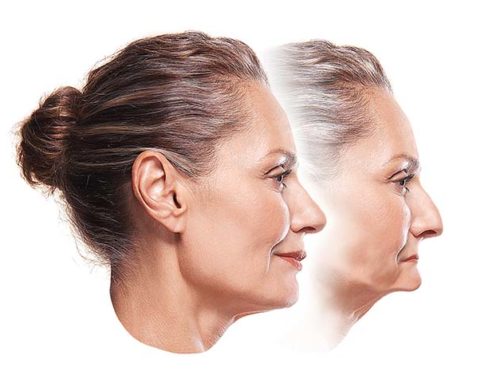In 2007 to 2009, among Canadian adults aged 20 to 79, 6.4% were edentulous; that is, they had no teeth of their own when examined by a dentist. The loss of all natural teeth can lead to changes in eating patterns, nutrient deficiency and involuntary weight loss as well as speech difficulty if left uncorrected. The rate rises steeply for people aged 60 to 79, with 22.3% of men and 21.1% of women having no natural teeth. The loss of all natural teeth can lead to changes in eating patterns, nutrient deficiency and involuntary weight loss as well as speech difficulty if left uncorrected.
What many people don’t realize is that the loss of teeth can lead to depression, self esteem issues, and a general social stigma. It’s one of those things that you don’t expect until it happens for you for the first time; either through trauma (accident) or naturally. These unexpected behaviours can then indirectly impact other parts of your life as well such as your career, confidence level, and overall well being. Annually, dentists extract about 20 million teeth, leaving scores of adults with the psychological affects of an“incomplete smile.”
At a meeting held by the Academy of General Dentistry (AGD), one speaker addressed the psychological issues that commonly affect people who have lost natural teeth. How this loss can affect many aspects of one’s quality of life was the central theme of the lecture. A survey reported that 86% of people listed social embarrassment as the number one issue associated with tooth loss; with over half of these patients having less social involvement as a result.
So what can you do to cope with tooth loss? First and foremost, take every measure to avoid tooth loss. Prevent it from happening. As much as I love my patients, it’s better for you if you don’t need to see me at all. But if tooth loss is unavoidable, consider the following:
- Educate yourself on the various treatments for teeth replacement: Dentures, Implant Retained Dentures, and Dental Implants
- Search online for feedback from other people in the same situation, understand what you’re getting into
- See a Denturist or talk it through with your Dental Professional
Advancements in the field of denturism and dental prosthetics, such as implant supported dentures, now provide excellent treatment options. Denturists can help people cope by explaining what is available to help restore the appearance and function of your smile. When it becomes necessary to replace teeth, we encourage patients to understand how the look, feel and function is important to their overall well-being.

